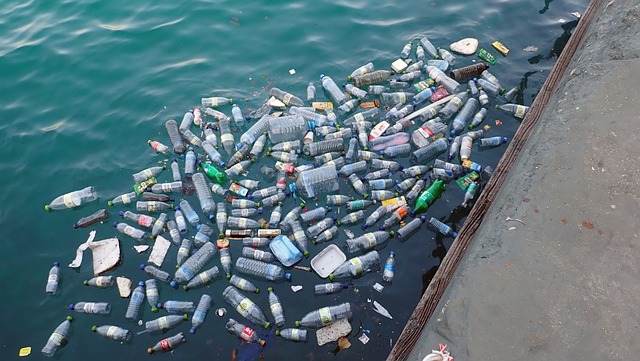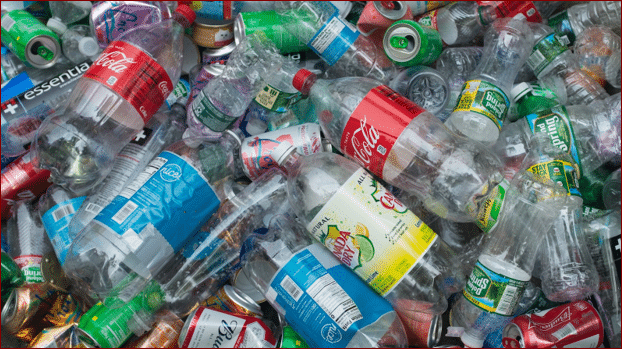Are you concerned about the growing crisis of plastic pollution and its impact on our planet?
In today’s modern world, plastic has become an integral part of our lives, but its disposal and improper management have led to devastating consequences for our environment.
From marine life being entangled in plastic debris to the contamination of our oceans, the need to tackle this global crisis has never been more urgent.
In this article, we will explore how we can actively participate in reducing plastic pollution and finding sustainable solutions.
You will discover practical ways to minimize the use of single-use plastics in your daily life, from opting for reusable bags to choosing alternatives to plastic bottles.
Furthermore, we will delve into the world of innovative recycling initiatives that are making a positive impact, from upcycling plastic waste into new products to implementing advanced recycling technologies.
By highlighting these sustainable solutions, we aim to inspire collective action and foster collaborative efforts towards a plastic-free future.
So join us on this journey as we explore the challenges of plastic pollution and discover the power we hold to make a difference.
The impact of plastic pollution on marine life
Plastic pollution is wreaking havoc on marine life, threatening their survival and causing irreparable damage to delicate ecosystems.
The oceans, once teeming with diverse marine species, are now becoming dumping grounds for plastic waste. As plastic debris accumulates in the water, marine animals mistake it for food and ingest it, leading to severe health problems and even death. From turtles mistaking plastic bags for jellyfish to seabirds getting entangled in fishing nets, the impact of plastic pollution on marine life is devastating.
Not only does plastic ingestion harm marine animals directly, but it also disrupts the entire food chain. When smaller marine organisms consume microplastics, they are then eaten by larger predators, causing the plastic to accumulate in their bodies. This bioaccumulation of toxic chemicals from plastics can lead to reproductive issues, impaired immune systems, and ultimately, population decline.
The consequences ripple through the entire ecosystem, affecting not only marine animals but also the livelihoods of communities that depend on healthy oceans for their sustenance.
To tackle this global crisis, sustainable solutions must be implemented. This includes reducing the production and consumption of single-use plastics, improving waste management systems, and promoting recycling initiatives.
Additionally, public awareness campaigns are crucial in educating individuals about the consequences of plastic pollution on marine life. By working together and making conscious choices in our daily lives, we can help protect marine life and preserve the delicate balance of our oceans for future generations.
It’s time to take action and find sustainable alternatives to plastic that will ensure the survival of marine life and the health of our planet.
Reducing single-use plastics in daily life
By making small changes in your daily routine, you can significantly reduce your reliance on single-use items and contribute to a healthier environment. One way to do this is by carrying a reusable water bottle with you wherever you go. Instead of buying plastic water bottles, you can simply refill your reusable bottle from a tap or water fountain. Not only will this help reduce the amount of plastic waste generated, but it will also save you money in the long run.
Another simple change you can make is to bring your own reusable bags when you go shopping. Instead of using the plastic bags provided by stores, bring your own fabric bags or even a backpack. This will help reduce the amount of plastic waste that ends up in landfills and oceans. Additionally, many stores now offer incentives for customers who bring their own bags, such as discounts or rewards points, so you might even save money while helping the environment.

Lastly, consider using reusable containers for your food and beverages. Instead of buying single-use plastic containers, invest in reusable ones made of glass or stainless steel. These containers are not only better for the environment, but they are also more durable and can keep your food and drinks fresh for longer periods of time. By making these small changes in your daily life, you can make a big difference in reducing plastic pollution and creating a more sustainable future.
Small Change – Impact
- Carry a reusable water bottle – Reduces plastic waste and saves money
- Bring your own reusable bags – Reduces plastic waste and may save money through store incentives
- Use reusable containers – Reduces plastic waste and keeps food and drinks fresh –
- Use public transportation or carpool – Reduces carbon emissions and decreases traffic congestion
Innovative recycling initiatives
Get ready to be amazed by the incredible recycling initiatives that are revolutionizing the way we handle waste and creating a greener future for all.
One such initiative is the use of recycled plastic in 3D printing. This innovative approach not only reduces the demand for new plastic production but also provides a solution for plastic waste that is difficult to recycle through traditional methods. By transforming plastic waste into printable materials, these initiatives are not only reducing plastic pollution but also promoting a circular economy where waste is treated as a valuable resource.
Another groundbreaking recycling initiative is the development of biodegradable plastic alternatives. These alternatives are made from organic materials such as plant starches and can easily break down in the environment, unlike traditional plastics that take hundreds of years to decompose. By replacing single-use plastics with biodegradable alternatives, we can significantly reduce the amount of plastic waste that ends up in our oceans and landfills. These initiatives are not only addressing the plastic pollution crisis but also promoting a more sustainable and compostable food packaging approach to product design.
Lastly, there are innovative recycling initiatives that focus on converting plastic waste into energy. Through a process called pyrolysis, plastic waste is heated in the absence of oxygen, resulting in the production of gasses and oils that can be used as fuel. This not only reduces the amount of plastic waste that ends up in landfills but also provides an alternative source of energy. By harnessing the energy potential of plastic waste, these initiatives are not only addressing the plastic pollution crisis but also contributing to the transition towards a more sustainable and renewable energy future.
Overall, these innovative recycling initiatives are paving the way for a greener future by tackling the global plastic pollution crisis. From using recycled plastic in 3D printing to developing biodegradable alternatives and converting plastic waste into energy, these initiatives are revolutionizing the way we handle waste and promoting a circular economy. By embracing these sustainable solutions, we can create a world where plastic pollution is no longer a threat and where waste is seen as a valuable resource.
So, let’s support these initiatives and be part of the solution to plastic pollution.
Collaborative efforts for a plastic-free future
Collaboration is key in our journey towards a future free from the harmful impact of plastic waste, as we join forces to find innovative ways to protect our environment and create a more sustainable world. It is through collaborative efforts that we can pool our resources and knowledge to tackle the global crisis of plastic pollution. By working together, we can develop and implement effective solutions that will make a real difference in reducing plastic waste and its devastating effects on our planet.
One example of collaborative efforts is The Plastic Pollution Coalition, a global alliance of organizations, businesses, and individuals working towards a plastic-free future. This coalition brings together diverse stakeholders who share a common goal of reducing plastic pollution. Through their collective action, they advocate for policy changes, support research and innovation, and promote public awareness and education. By leveraging their combined expertise and influence, they are able to drive significant change and inspire others to join the movement.
Another powerful collaboration is the Ellen MacArthur Foundation’s New Plastics Economy initiative. This initiative brings together leading businesses, governments, and NGOs to rethink and redesign the way we produce, use, and dispose of plastic. By working together, these stakeholders are able to create a circular economy for plastic, where it is reused, recycled, or composted instead of ending up in our oceans and landfills. This collaborative effort is driving systemic change in the plastic value chain, addressing the root causes of plastic pollution and paving the way towards a more sustainable future.
Collaboration is not only happening on a global scale but also at the local level. Communities, businesses, and individuals are coming together to find innovative solutions to plastic waste. Through grassroots movements, beach clean-ups, and recycling initiatives, these collaborative efforts are making a tangible impact in reducing plastic pollution. By working together and sharing best practices, these local collaborations are creating a ripple effect that inspires others to take action and work towards a plastic-free future.
Collaborative Effort – Key Stakeholders – Impact
- The Plastic Pollution Coalition – Organizations, businesses, individuals – Advocacy, research, education
- Ellen MacArthur Foundation’s New Plastics Economy initiative – Businesses, governments, NGOs – Circular economy for plastic
- Local grassroots movements – Communities, businesses, individuals – Tangible reduction in plastic waste
Conclusion
In conclusion, you’ve learned about the devastating impact of plastic pollution on marine life and the urgent need to reduce single-use plastics in our daily lives. By making simple changes like using reusable bags and water bottles, you can help make a difference.
Additionally, innovative recycling initiatives are being developed to effectively manage and repurpose plastic waste. This crisis requires collaborative efforts from individuals, businesses, and governments to ensure a plastic-free future.
Together, we can tackle this global crisis and create a sustainable world for generations to come. So, let’s take action now and be part of the solution!
DISCLAIMER – “Views Expressed Disclaimer: Views and opinions expressed are those of the authors and do not reflect the official position of any other author, agency, organization, employer or company, including NEO CYMED PUBLISHING LIMITED, which is the publishing company performing under the name Cyprus-Mail…more







Click here to change your cookie preferences